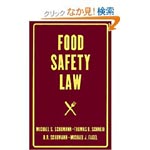China passes food safety law amid scandals
 Beijing - China's nominal parliament on Saturday approved a new food safety law designed to stem a recent tide of scandals over tainted food products.
Beijing - China's nominal parliament on Saturday approved a new food safety law designed to stem a recent tide of scandals over tainted food products.
The Standing Committee of the annual National People's Congress, which approves policies and laws proposed by the ruling Communist Party, said the new law would help ensure food safety "from the production line to dining table."
The law provides for a new monitoring and supervision system, a set of national standards, a recall system and "severe punishment for offenders," the government's official Xinhua news agency reported.
The approval of the law follows "a spate of food scandals," the agency said.
In the biggest recent scandal, two men were sentenced to death and four others to life in prison last month for their involvement in the production of melamine-tainted milk that caused the death of six infants and sickened almost 300,000.
The milk powder scandal was hushed up for several months during last year's Beijing Olympics and only became public in September, when hospitals were overcrowded with sick infants.
This month, more than 80 people in the southern province of Guangdong were sickened after consuming pig offal contaminated with an illegal feed additive.
"Repeated food safety accidents, such as milk contaminated by melamine and problematic duck eggs, have made urgent a sound law regulating the entire process of food production - from growing crops and raising stock and poultry to the manufacturing of food products," the official China Daily newspaper said.
"For consumers, such a law will hopefully stop farmers from using too much fertilizer, pesticides or other chemicals that may promote the growth of crops and vegetables at the risk of adverse health effects," the newspaper said.
The law also targets advertising, after several celebrities had appeared in television commercials or milk powder sold by Sanlu, the main company involved in last year's scandal.
But it could increase food prices because of the cost of stricter tests on raw materials and tighter control of manufacturing, the newspaper said.
"It is unrealistic to hope that the adoption of this law will immediately change the landscape of food safety," it said. (dpa)